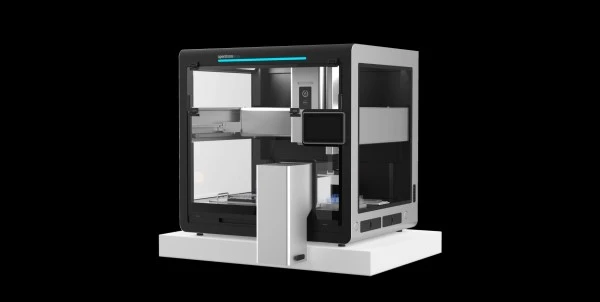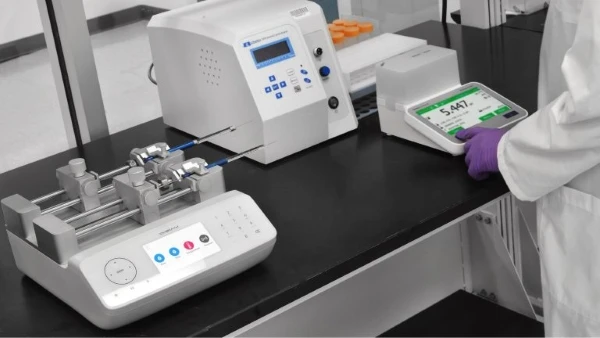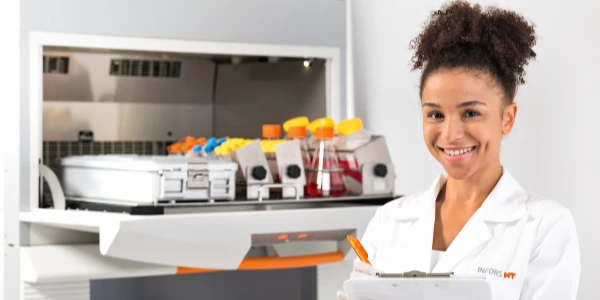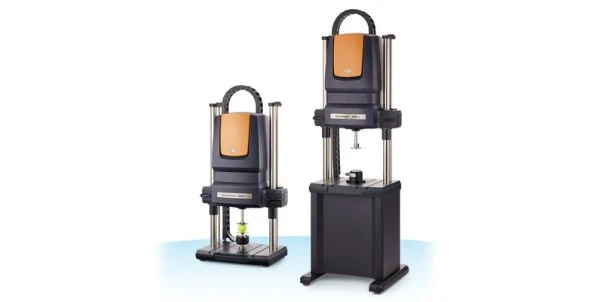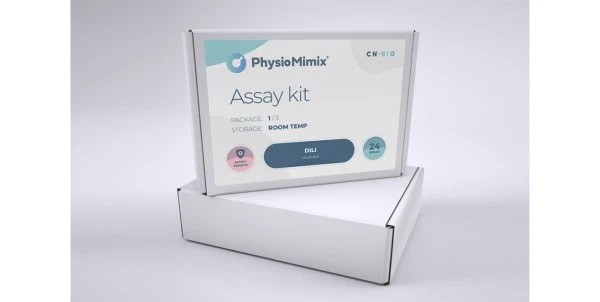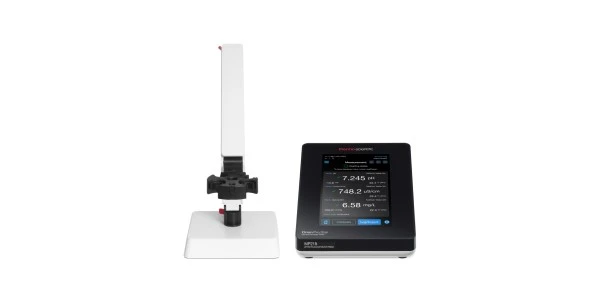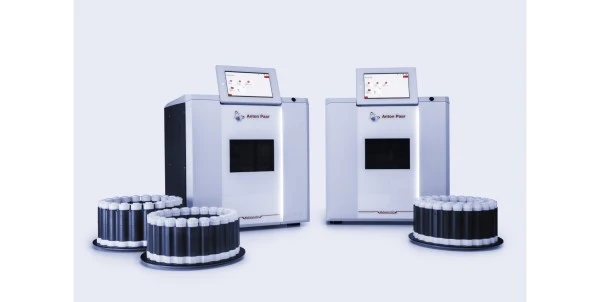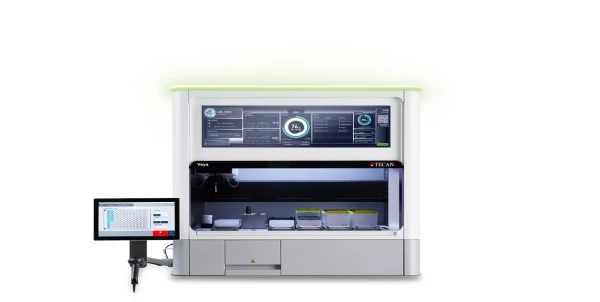
The Latest Products and Innovations in the Fight Against COVID-19
Bold innovations in sample collection, point of care detection, immunity profiling and other applications are adding new firepower in the fight against COVID-19
Remote Sample Collection
Blood sampling by venipuncture is a traditional method to obtain blood plasma or serum for clinical laboratory testing. Depending on the needs of the diagnostic to be performed, a range of alternative methods also exist. There have been many developments around RT-PCR testing for virus and antibody testing for virus exposure, and the large majority of these have focused on the reagents, techniques, and instrumentation used for these analyses in the lab.
Neoteryx has engaged it’s FDA Class I, CE/IVD Mitra device technology as an innovative blood sampling technique in the fight against COVID-19. Powered by Volumetric Microsampling (VAMS) technology, the method enables precise, efficient material usage that is compatible with downstream automation and equipment in a range of lab settings.
The Mitra microsampler kit can be used in the home setting in the hands of the patient themselves or in a physician office or clinic setting. Using a custom lancet and sample collection tips, blood droplet-sized samples are drawn via fingerstick, sealed, and the shipped to the lab for analysis.
The technology was recently embraced by scientists at the University of Rochester in the development of a rapid fingerstick COVID-19 test, and past work, including research into influenza virus detection, provides strong indications of potential success.
A step further, the NIH recently enlisted the sampling technology in a study to quantify undetected cases of coronavirus infection, in efforts of inform public health decision making. As the virus has been shown to infect healthy individuals producing in some cases minimal or no symptoms, population-wide testing can provide more accurate data on infection rates and transmission dynamics.
Point of Care Testing
To date well over a hundred molecular and antibody testing platforms have been approved by the FDA through the emergency use authorization (EUA) program. A strengthened evaluation process has removed spurious, inaccurate tests while ongoing innovation has brought new products into the approved testing realm.
Point-of-care testing is a coveted platform for capturing as much data as possible, quickly and easily, to enhance rapid treatment strategies and enable population-wide efforts. Studies reported in late April online showed that saliva is of sufficient sensitivity for SARS-CoV-2 detection. Saliva can be readily obtained and processed to measure viral RNA by RT-PCR, with certain potential advantages over swabs, which are currently suffering from shortages in the field. Perhaps most importantly, as Rutgers Infinite Biologics has now shown, saliva can be captured, sealed, and sent for analysis from nearly any location, producing high-quality actionable results.
Point of care testing may witness additional leaps in innovation by the advent of breath viral analysis and other techniques. Ionicon is applying their expertise in sensitive, real-time volatile organic compound (VOC) and organic particle analysis to the COVID-19 cause. The goal includes development of a quick, non-invasive COVID-19 test for active infection using trace analysis for virus signatures in patient breath. Ionicon PTR-TOF systems use a sensitive technique (proton transfer reaction – mass spectrometry), and fitted with a specialized, disposable, breath sampling inlet, tests can produce the sensitive and specificity needed with an incredibly quick time to result. These systems may see increasing action at the front-lines of the COVID-19 battle.
Immune Profiling and Testing
One of the most challenging aspects of COVID-19 infection is the wide-ranging scope and severity of immune response in patients. Despite the critical role of the immune system, the features and mechanisms involved in the response remain poorly characterized.
This is changing, however, with more comprehensive patient data and the work of advanced technology. Fluidigm, a biotechnology tools provider, has teamed up with researchers at the University of Paris to monitor changes in the immune systems of COVID-19 patients. Using advanced mass cytometry, Fluidigm has created the Maxpar Direct Immune Profiling Assay and Maxpar Pathsetter analysis software. The assay offers a fixed panel of 30 standard markers of immune activity, as well as identification capabilities for novel markers. In reported clinical investigations, “analyses of multiple markers revealed changes in the populations of different types of immune cells, and most important, to their antiviral response in 50 patients with varying disease severity.”
Reagents, tools, and technology providers have advanced the COVID-19 fight on multiple levels. RayBiotech has produced a number of research products including: SARS-CoV-2 protein antigens, antibodies, ELISA kits, PCR virus detection kits, spike protein ACE2 receptor binding kits, and multiplex protein arrays for immune screening. The company also offers inflammation cyotokine arrays to facilitate research into the high and variable levels of cytokines that have been reported in association with patient immune responses.
So-called “cytokine storms” are now known to be a common complication of COVID-19 infection triggering systemic inflammation, Acute Respiratory Distress Syndrome (ARDS), respiratory failure, and a host of other potentially life-threatening conditions. Randox Laboratories offers a comprehensive range of testing solutions including: cytokines, cytokine receptors, and growth factors designed to assist COVID-19 identification and treatment. Using patented biochip technology, kits can measure up to 12 cytokines and growth factors from a single patient sample – with automatable methods to suit a wide range of laboratory throughputs.
Summary
Innovations and new products have been essential, from the front lines of patient care to the testing and research efforts. As new information and treatment options emerge, new technologies will continue to lead the way in the fight against COVID-19.
